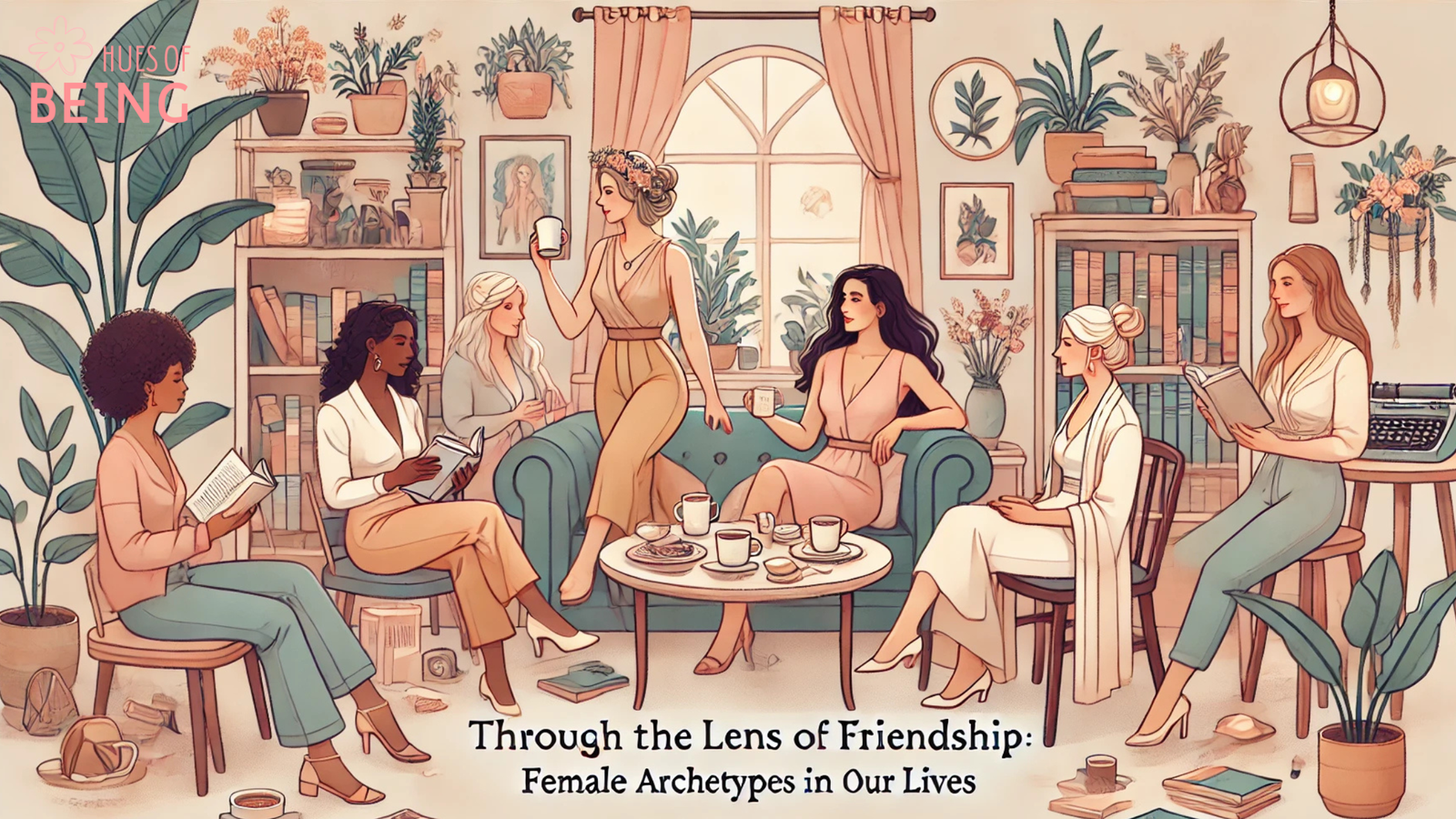Some of my fiercest friends have been from the Sex and the City franchise. While I stayed glued to the twirls of their fancy skirts more than the plot twists, it doesn’t hurt to have my own take on female friendship. After all, friends occupy significant mental and emotional space in our lives. After family and societal structures, our peers play a huge role in shaping who we are. This one’s for the fierce female friends who may benefit from a psychological perspective on the dynamics of these intimate relationships.
The Weight of Childhood Peer Dynamics
Many of my clients have shared childhood trauma rooted not just in bullying but in the subtler wounds inflicted by peers. Often, they carry an unarticulated sadness, an intricate web of unresolved hurt. It’s a mix of external trauma and the lack of resolution or validation needed to empower one’s sense of self. These early experiences, especially the ones involving peers, can cast long shadows into adulthood.
Take, for instance, the child who is labeled an underachiever. They might receive constant messaging from teachers or parents that they’re somehow inadequate, unable to match the value their peers provide. On the flip side, the overachiever might face animosity for excelling, leading to a lonely existence cloaked in achievements. A sensitive child who expresses emotions may be met with discomfort or judgment from peers unequipped to handle such expressions, prompting them to stifle their feelings. And a child publicly humiliated by a teacher might internalize that moment as shame, locking them in a cycle that echoes into adulthood.
Contrary to the idea of children as blank slates, they are fully capable of jealousy, envy, comparison, and unhealthy competition—striving for attention and affection from authority figures. These dynamics aren’t innate but a reflection of the competitive and hierarchical world we live in. Children, much like adults, are vulnerable to feeling insecure, small, and inadequate.
Friendship and Power Dynamics
Even the absence of affirmative actions—such as being valued as a friend—can lead to power imbalances. Friendships, unlike family or institutional relationships, are ostensibly equal, yet conflicts and insecurities can distort this balance. Over time, the divergent choices we make color our individual life canvases, sometimes creating contrasts that test the bond.
Insecurity and shame can warp how we interpret our friends’ words and actions, turning what should be mutual support into a subtle tug-of-war for validation. These power dynamics can be a silent strain on even the strongest friendships.
Uncomplicating Female Friendships
So, how do we navigate this delicate terrain? Instead of emotionally cutting off from a friend, let’s approach these relationships with curiosity and a willingness to understand. Female friendships don’t have to feel like a battlefield of insecurities. They can be a space to explore and grow, lightheartedly yet meaningfully.
Carl Jung’s concept of archetypes offers a compelling lens through which to view these dynamics. As you will see from the Sex and the City series, the four women can at times be the voices of one woman! An independent woman who wants romance and security in her relationships and yet is attracted to men with avoidant attachment styles. A career-driven woman who doesn’t have the time to into receive slow intimacy from her long-term life partner. A creative artistic woman who relies on her strength of adapting to the roles of a wife and mother and can at times be reserved in exploring her more adventurous identities. A sharp shark of an outlier whose outlandish YOLO attitude can come in the way of adapting and changing one’s self with time. Archetypes operate as subconscious programs that influence our reactions and behaviors, often triggered by life’s stages or specific situations. Unlike overarching core beliefs, these psychological states provide both challenges and solutions, offering pathways for growth.
Archetypes in Action
For example, a married woman might find empowerment in the story of Persephone, the Greek goddess forced into unforeseen challenges by her husband Hades. Yet, by reclaiming her agency, Persephone becomes the Queen of the Underworld. Another woman might embody Athena, who thrives on intellect and conquering male-dominated domains, viewing traditional roles as a waste of potential. A divorced woman, meanwhile, may resonate with Hera, the goddess loyal to marriage, even as she navigates life post-separation.
Jean Shinoda Bolen, in her book Goddesses in Every Woman, makes a powerful case for women’s multidimensional identities. She explores seven archetypes, illustrating how awareness and self-understanding can empower us to embrace our diversity and complexity. As we evolve through different versions of ourselves, our female friends are likely experiencing parallel transformations—even if their journeys look vastly different.
Final Thoughts
Female friendships, like the women who form them, are intricate and evolving. They are our mirrors, our challengers, and sometimes our biggest cheerleaders. Maybe the key isn’t to overanalyze every text or call but to loosen up a bit. After all, life’s too short to spend untangling a friendship thread by thread—sometimes, you just need to laugh at the knot, pour another glass of wine, and move forward.
By exploring the archetypes within ourselves and others, we can better understand the unspoken dynamics and grow together. Instead of allowing insecurities to fester, let’s use these archetypes as tools to navigate the rich, complex world of female friendships with empathy, curiosity, and joy.
Stay tuned for part two, where we delve deeper into the archetypes and how they shape our closest bonds.

